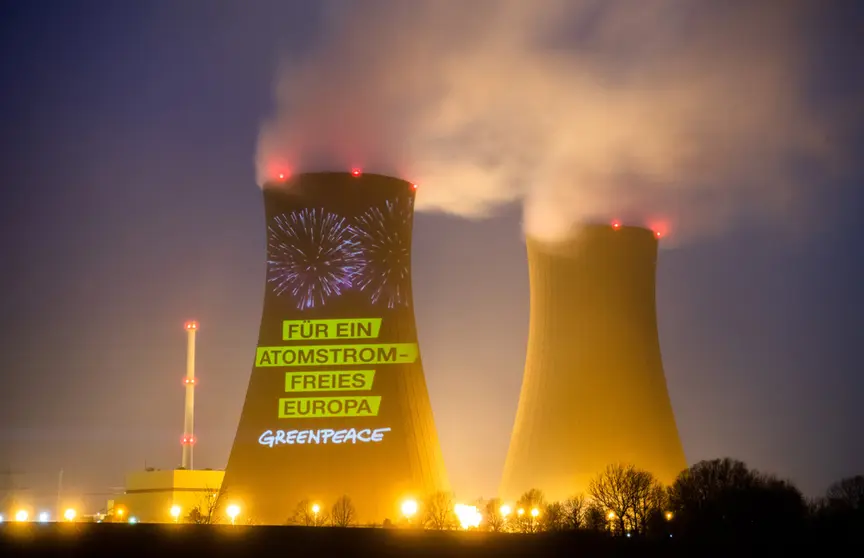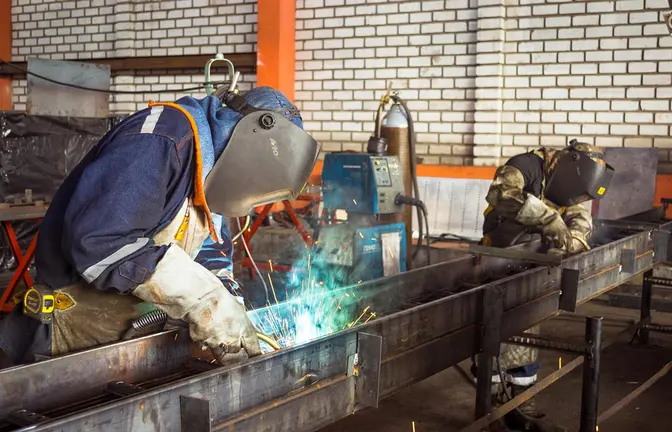The European Commission is to adopt on Wednesday deeply contested legislation that classifies natural gas and nuclear energy projects as environmentally-friendly investments under certain conditions.
The EU's executive arm's draft regulations - handed over to the member states in December - have divided the European Union, provoked a backlash from environmental groups and prompted condemnation from the very climate experts consulted in drawing up the legislation.
The legislation is an update to an investment classification system dubbed the taxonomy, which aims to channel private investments to help the EU meet its 2050 climate goals of emitting "net zero" greenhouse gas emissions.
The commission has defended the inclusion of nuclear and gas as a pragmatic decision to assist the transition to renewable energy sources.
Under the draft taxonomy, investments in new gas-fired energy plants before 2030 are classified as environmentally friendly if emissions total less than 270 grams of carbon dioxide (CO2) per kilowatt hour.
For investments in nuclear energy to be included, a power plant must be up to the latest technological standards and have an approved plan for atomic waste disposal in operation by 2050 at the latest.
Critics charge however the long-term risks of radioactive waste and environmental damage outweigh any absence of carbon emissions and argue fossils fuels like gas have no place at all in the taxonomy.
Opposition from EU member states towards the taxonomy reflects different economic priorities and how countries generate energy - with different governments split between support for nuclear, gas or renewables.
'Nuclear', gas supporters
France, one of the world's major producers of nuclear power, pushed hard for the taxonomy to include nuclear energy with support from Poland and Hungary.
Germany on the other hand has a strong pro-gas stance but opposes nuclear and Berlin has insisted on making the criteria for gas investments more flexible with some success.
A 2026 deadline for gas-fired energy plants to show a shift to more climate-friendly sources present in an earlier taxonomy draft has now been removed.
New gas-fired power plants replacing older facilities are to meet less stringent emission limits as well according to the draft.
On Tuesday Sweden sent a letter to the commission opposing the inclusion of "fossil-gas based activities."
Spanish opposition
In January, Denmark and Austria had strongly opposed the inclusion of both nuclear and gas in the taxonomy alongside Spain and Luxembourg.
Luxembourg and Austria have also threatened the EU's executive arm with legal action over the draft regulations.
The private sector has also shown opposition. The Institutional Investors Group on Climate Change (IIGCC), which includes major banks such as HSBC and BNP Paribas, called for gas to be excluded from the taxonomy.
The EU's own European Investment Bank has also voiced criticism.
The changes are an update to existing legislation based on consultations with financial and environmental experts from the 27 EU member states.
These same experts heavily criticized the commission's decision to classify gas and nuclear power as sustainable investments in their feedback last month.
The taxonomy will come into force, unless the European Parliament or the European Council, representing the EU member states, block the investment rules in the next four to six months.
To do this, a majority of 20 of 27 member states, or 353 parliamentarians is needed - a high threshold that is unlikely to be met.












